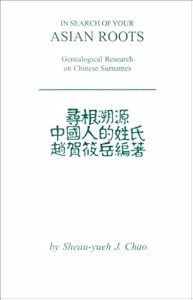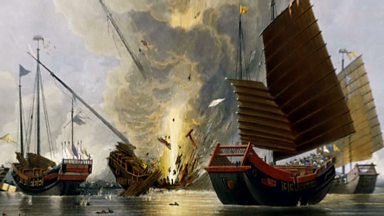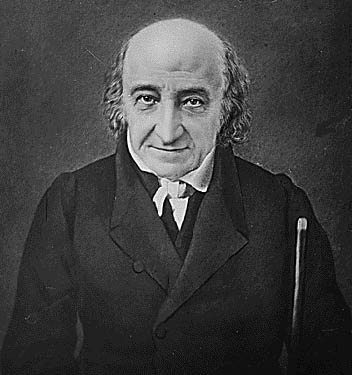A suggestion for Google and others
This is a silly and short blog post, but one of the things that irritates me most in this era of the smartphone is that there are no obvious protocols for the data entry of Chinese names. Google Contacts allows me to enter the phonetic first name and phonetic last name, but in China, "the last shall be first and the first shall be last."
Would it not be smarter to say surname and given name? Is there some culture, readers, where this convention would not solve my problem? It is rather embarrassing to call Wu Zhang when I meant to call Zhang Wu (names changed to protect the innocent).
If you are more interested in this topic, there are a plethora of interesting articles available on the most popular names in Chinese. Li (or, as we spell it out West: Lee) is the fourth most popular. As usual, Wikipedia is a good place to start.
Monday, October 14, 2013
Saturday, October 12, 2013
Beijing Botanical Gardens
 |
| Photo credit: Deborah Zhang |
Yesterday morning I rousted Deborah and said we needed to be on the train by 8:30 AM. Our destination, not Bangor, Maine, but the Beijing Botanical Gardens. It took precisely an hour and a half to get there.
 |
| The Conservatory or Beijing Botanical Garden Public Greenhouse. Photo credit: You Are Not From Around Here |
One of the points-of-interest is the Conservatory. As the Confucius Institute say, in typical Chinglish:
Beijing Botanical Garden Public Greenhouse, designed by Beijing Institute of Architect, is located in the western part of Central Axis Road of Beijing Botanical Garden which is at the foot of the Fragrant Hills...Beijing Government invested nearly 260 million Yuan to construct the world’s largest single exhibition greenhouse taking an area of 9800 square meters and a floor space of 5.5 hectares. Its space is as twice as the greenhouse in Kunming World Expo, making it one of the big events in China’s architectural history.I did not go inside, but will go back in a month when the hills are bathed in vermilion (Beijing's peak foliage season is a month later than Vermont's peak by my guesstimate).
 We paid the ten yuan entrance fee and then an additional two yuan fare to see the bonsai exhibit, which had more cool stones than funky little trees, but was nonetheless delightful. It was a bit rushed so we swirled through the bonsai garden in order to allow Deborah to make a 2 PM appointment, which she learned about at 9:20 AM while we were en route.
We paid the ten yuan entrance fee and then an additional two yuan fare to see the bonsai exhibit, which had more cool stones than funky little trees, but was nonetheless delightful. It was a bit rushed so we swirled through the bonsai garden in order to allow Deborah to make a 2 PM appointment, which she learned about at 9:20 AM while we were en route.
The roses were in full bloom and were, florally-speaking, the highlight. There was also a tribute to Cao Xuexin, the author A Dream of Red Mansions--one of the four great classic novels. I have read half of it, as earlier posts have indicated.
 |
| "Making Honey" Photo credit: Deborah Zhang |
 |
| A bit fuzzy, my photo of an old printing press of Dream of Red Mansions. |
 |
| A neat little insect enjoying the sunshine and clean air in the shadow of the Fragrant Hills. |
A group of children played delightedly in the vicinity of this detailed sculpture.
 |
| Very cool lily pads within the confines of the Bonsai Garden's inner-sanctum. |
On our way out, we bought a plant from the same vendor that was pedaling this pitcher plant. The plant will sit on our coffee table, which we call a cha ji (tea table). It is customary and proper to have a plant on your tea table to remind those sipping tea (pin cha) of nature, because tea ought really to be consumed out of doors in the verandas of Cao Xuexin's great novels or even high in the Fragrant Hills.
Friday, October 11, 2013
Concerning the Black Stones that are Dug in Cathay, and Are Burnt for Fuel
It is a fact that all over the country of Cathay [China] there is a kind of black stones existing in beds in the mountains, which they dig out and burn like firewood. If you supply the fire with them at night, and see that they are well kindled, you will find them still alight in the morning; and they make such capital fuel that no other is used throughout the country. It is true that they have plenty of wood also, but they do not burn it, because those stones burn better and cost less.
-Travels of Marco Polo, Book II, Chapter XXX (circa 1300 A.D.)
 |
| Coal for domestic use being transported by use of a tricycle. Is this saving or adding to emissions? (Wikipedia, Brian Kelley from Auggen, Germany ) |
They Burn Better and Cost Less
As the Line 10 subway train chugged through the station called Yuanmingyuan, which is the site of the old summer palace plundered during the Boxer Rebellion (the Chinese call it the Invasion of the Eight Power Alliance, for good reason), I tugged on Deborah's sleeve, pointing to the footnote from my edition of Polo's Travels, in which my new Kindle has allowed me to become enmeshed. It says, in relevant part, "Near the capital coal is mined at Yuen-ming-yuen, and in a variety of isolated deposits among the hills in the direction of the Kalgan road, and in the district round Siuen-hwa-fu. (Sindachu of Polo, ante ch. lix.)"It then continues:
But the most important coal-fields in relation to the future are those of Shan-tung, Hu-nan, Ho-nan, and Shan-si [known in the pinyin as Shandong, Hunan, Henan, and Shanxi]. The last is eminently the coal and iron province of China, and its coal-field, as described by Baron Richthofen, combines, in an extraordinary manner, all the advantages that can enhance the value of such a field except (at present) that of facile export; whilst the quantity available is so great that from Southern Shan-si alone he estimates the whole world could be supplied, at the present rate of consumption, for several thousand years. "Adits, miles in length, could be driven within the body of the coal.... These extraordinary conditions ... will eventually give rise to some curious features in mining... if a railroad should ever be built from the plain to this region ... branches of it will be constructed within the body of one or other of these beds of anthracite." Baron Richthofen, in the paper which we quote from, indicates the revolution in the deposit of the world's wealth and power, to which such facts, combined with other characteristics of China, point as probable; a revolution so vast that its contemplation seems like that of a planetary catastrophe. [my emphasis]
 I am struck by the prescience of the two observations of the Baron Ferdinand Richtofen to which I have drawn attention. [The baron was the uncle of the more famous "Red Baron," a successful flying ace known to the post-WWI generation for his daring feats and to the post-Charles Schulz generation because of Snoopy.]
I am struck by the prescience of the two observations of the Baron Ferdinand Richtofen to which I have drawn attention. [The baron was the uncle of the more famous "Red Baron," a successful flying ace known to the post-WWI generation for his daring feats and to the post-Charles Schulz generation because of Snoopy.]The Baron of whom we are currently speaking was born in 1833 in Prussian Silesia. He traveled extensively and had a mountain named for him in China; there is still an eponymous peak, the tallest in the Rocky Mountain National Park's Never Summer Mountains. He is also said to have played a role in identifying gold fields in the decade following the American Civil War.
It took him some time to visit China after his initial intrigue was drawn there, as the Middle Kingdom was, at that time, immersed in the Taiping Rebellion, which continues to be the single bloodiest war in history by some accounts, possibly claiming 100 million lives. When he did get there, his notes were voluminous. The 1911 version of the Encyclopedia Britannica records,
In a remarkable series of seven journeys he penetrated into almost every part of the Chinese Empire. He returned home in 1872, and a work comprising three large volumes and an atlas, which, however, did not cover the entire field or complete the author's plan, appeared at Berlin in 1877-85 under the title of China; Ergebnisse eigner Reisen und darauf gegründeter Studien. In this standard work the author deals not only with geology but with every subject necessary to a general geographical treatise. Notably he paid close attention to the economic resources of the country he traversed; he wrote a valuable series of letters to the Shanghai Chamber of Commerce, and first drew attention to the importance of the coalfields of Shantung, and of Kiaochow as a port. [my emphasis]It is in this second passage that I find a curious disconnect. If he thought that stripping China of its many resources was tantamount to a "planetary catastrophe," why then was he writing letters to the men he knew would be first in line to exploit them? This topic is explored in an interesting paper by Ghassan Moazzin, a graduate student at Cambridge on the Faculty of Asian and Middle Eastern Studies. His conclusion is simple, "It was only when he started to employ imperialism in order to develop his career and finance his work that he gradually grew more dependent on it. Simultaneously the closer his relationship to imperialism became the more his work was influenced by it." This certainly seems like a plausible explanation, unless the venerable Henri Cordier, who offered the meticulous notes on Polo's Travels, was himself making loose with Richtofen's characterization.
Anyway, these are the encouraging numbers from the government today. China is serious about climate change...or, at least, about reducing air-borne pollutants for its increasingly outspoken populous. When will the United States get down to business?
N.B. The word adits in the footnote of Cordier means the horizontal mouth of a mine, but does not appear in Bill Gates' MicrosoftWord dictionary.
Monday, October 7, 2013
On Opium and Boxers
Why Edwin Meese the Third is Like William Jardine
As you may know, it is fairly easy to watch or listen to anything you want here--TV shows, documentaries, films, etc. Intellectual property rules are mooshi like pork. Last night, I settled down fairly late, in my den and dressed only in my boxers, to watch Episode 2 (Opium), having not seen Episode 1 (Sugar), of a BBC series called Addicted to Pleasure; it was supposedly view-able only in Scotland. The other two episodes deal with whisky and tobacco--two other scourges of the British Empire in which Scotsmen played a leading role.
In this segment on opium, though, Brian Cox does a brilliant job of jogging our memories about two-hundred years of history...except, as he notes, he is not jogging our memories at all, because, as in America, the Scottish textbooks are markedly devoid of mentioning the two major opium wars (First Opium War from 1839 to 1842 and Second Opium War from 1856 to 1860) or much at all about the trading of opium with China, which began in the 1630s. On the other hand, as well-dressed, Chinese-born Professor Yangwen Chen from the University of Manchester proclaims into the camera with a righteously accusatory edge in her voice:
Anyway, of the opium-focused episode that I watched, BBC's short review states:
Jardine, Matheson Co. (now Jardine Matheson Group) is still a going concern with a towering office complex in Hong Kong that employs more people in its conglomerate than any entity but the government. Its website innocuously states, "Since its foundation Jardines has been one of Asia's most dynamic trading companies, often having to reinvent itself in order to survive and prosper. Reflective of the times in which it traded, the Group has led the way in many businesses and has helped bring prosperity to the region."
They do not mention the word opium once in the three segments of their company's timeline that stretch from 1830 to 1939. Still, there is little debate about what happened. I suppose certain past leaders of Iran could pretend that it never happened, much like The Holocaust, but historians mostly agree: Jardine and Matheson led England to war. Actually, they marshaled the Royal Navy for a wholesale slaughter in Britain's most ignominious war.
This is decidedly on point today, because when historians write the history of our times, they will need to tell the story of how the government shutdown was orchestrated by angry billionaires. Edwin Meese III is one unpatriotic, despotic, sick old man. I remember him from 1986 when I did my very first research paper for Mr. Green on Meese's messy role in the Iran-Contra Affair. Meese resigned in the wake of the Wedtech Scandal just a bit later. He is the William Jardine of today. Out of incredible self-interest, he is prodding our nation's "leadership" to do things that will be judged immoral and outrageous by future generations.
As you may know, it is fairly easy to watch or listen to anything you want here--TV shows, documentaries, films, etc. Intellectual property rules are mooshi like pork. Last night, I settled down fairly late, in my den and dressed only in my boxers, to watch Episode 2 (Opium), having not seen Episode 1 (Sugar), of a BBC series called Addicted to Pleasure; it was supposedly view-able only in Scotland. The other two episodes deal with whisky and tobacco--two other scourges of the British Empire in which Scotsmen played a leading role.
In this segment on opium, though, Brian Cox does a brilliant job of jogging our memories about two-hundred years of history...except, as he notes, he is not jogging our memories at all, because, as in America, the Scottish textbooks are markedly devoid of mentioning the two major opium wars (First Opium War from 1839 to 1842 and Second Opium War from 1856 to 1860) or much at all about the trading of opium with China, which began in the 1630s. On the other hand, as well-dressed, Chinese-born Professor Yangwen Chen from the University of Manchester proclaims into the camera with a righteously accusatory edge in her voice:
[In China] textbooks from elementary school to middle school to high school to university highlights [sic] the wrong-doings of the so-called imperialists. Students would be led to the site where the opium war took place. It has become part of what they call the patriotic education program to educate Chinese youth like me so that we remember what you have done to us.In fact, the Battle of Peking in 1900 and the invasion of the Eight-power Allied Forces is also a small entry in most history texts, usually under the pseudonym "The Boxer Rebellion." The British & World English Dictionary still defines Boxer as, "a member of a fiercely nationalistic Chinese secret society that flourished in the 19th century. In 1899 the society led a Chinese uprising (the Boxer Rebellion) against Western domination that was eventually crushed by a combined European force, aided by Japan and the US."
Anyway, of the opium-focused episode that I watched, BBC's short review states:
Scotland is plagued with over 50,000 drug addicts and one of the roots of this addiction is the opium poppy. In this second episode, actor Brian Cox travels to China to discover how the seeds of this modern-day addiction were planted during the height of Britain's trading empire. Since then opium has fuelled the world's largest drug-smuggling operation, earned vast fortunes, triggered war with China and inspired medical breakthroughs. Brian Cox reveals how Britain unleashed the most dangerous of addictions on the world, and how the consequences still haunt us today.This tells you only a little bit, though. The illustrative tales that Mr. Cox brings to life are, as he notes with a nervous laugh, exceedingly cruel and pervasive. In the days of yore, missionaries brought "Jesus pills" of heroin and morphine to cure people of their addiction to opium, which was smoked, drunk, and otherwise imbibed until the invention of the hypodermic needle. More than 13 million Chinese were addicted to opium at one point. The Canton System gave rise to nine factories in Guangzhou (aka Canton) that were raided by an angry Qing emperor. Fighting broke out and the future barons and Members of Parliament William Jardine and James Matheson, two trading partners who controlled a major proportion of the opium trade, won their place in British history. The junior Matheson was sent slinking home by his business partner, Jardine, to convince Parliament to send ships.
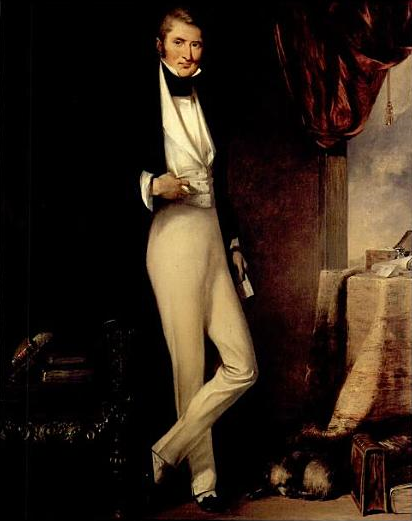 |
| William Jardine |
They do not mention the word opium once in the three segments of their company's timeline that stretch from 1830 to 1939. Still, there is little debate about what happened. I suppose certain past leaders of Iran could pretend that it never happened, much like The Holocaust, but historians mostly agree: Jardine and Matheson led England to war. Actually, they marshaled the Royal Navy for a wholesale slaughter in Britain's most ignominious war.
This is decidedly on point today, because when historians write the history of our times, they will need to tell the story of how the government shutdown was orchestrated by angry billionaires. Edwin Meese III is one unpatriotic, despotic, sick old man. I remember him from 1986 when I did my very first research paper for Mr. Green on Meese's messy role in the Iran-Contra Affair. Meese resigned in the wake of the Wedtech Scandal just a bit later. He is the William Jardine of today. Out of incredible self-interest, he is prodding our nation's "leadership" to do things that will be judged immoral and outrageous by future generations.
Friday, October 4, 2013
Acupressure Slippers and other Indulgences
Recently, I have been rather self-indulgent.
I have bought a Kindle paperwhite, which is already transforming me into an avid commuter-reader stumbling along the underpasses between subway stops buried in Faust and The Odyssey. I have subscribed again to The Atlantic. I have already read a book on Basho by the poetess Jane Hirshfield--more of an essay than a book, I suppose, and am several chapters into Marco Polo's Travels.
I have also bought a bicycle and will momentarily bike across the city, despite the fact that the air has deteriorated again. After a few horrible days, we had some positively wonderful days and now it is back in the "unhealthy" range again. I will go from Dongzhimen to Weigongcun, should any of you wish to Google Map the route.
Finally, I got myself a new pair of slippers. According to one source, these are the key features of my new slippers:
Functions and role:
I have bought a Kindle paperwhite, which is already transforming me into an avid commuter-reader stumbling along the underpasses between subway stops buried in Faust and The Odyssey. I have subscribed again to The Atlantic. I have already read a book on Basho by the poetess Jane Hirshfield--more of an essay than a book, I suppose, and am several chapters into Marco Polo's Travels.
I have also bought a bicycle and will momentarily bike across the city, despite the fact that the air has deteriorated again. After a few horrible days, we had some positively wonderful days and now it is back in the "unhealthy" range again. I will go from Dongzhimen to Weigongcun, should any of you wish to Google Map the route.
Finally, I got myself a new pair of slippers. According to one source, these are the key features of my new slippers:
- Rich LeKang natural pebbles massage with tai chi magnet
- Artificial selection of grinding natural pebbles and agate stones, according to plantar acupoint scientific arrangement through pebbles natural arc to massage foot reflection zone, stimulate foot points there by relaxing tendons, relieve fatigue, promote blood circulation to reconcile reins and the function of balancing Yin and Yang
Functions and role:
- Smooth, promote blood circulation and reduce fatigue
- Expel toxin accumulation and keep healthy
- Improve endocrine balance, nice shaping
- Strengthen metabolism and keeps youth
- Restoring degraded organ function and prevent illness
- Stimulate cells to produce energy and prevent aging
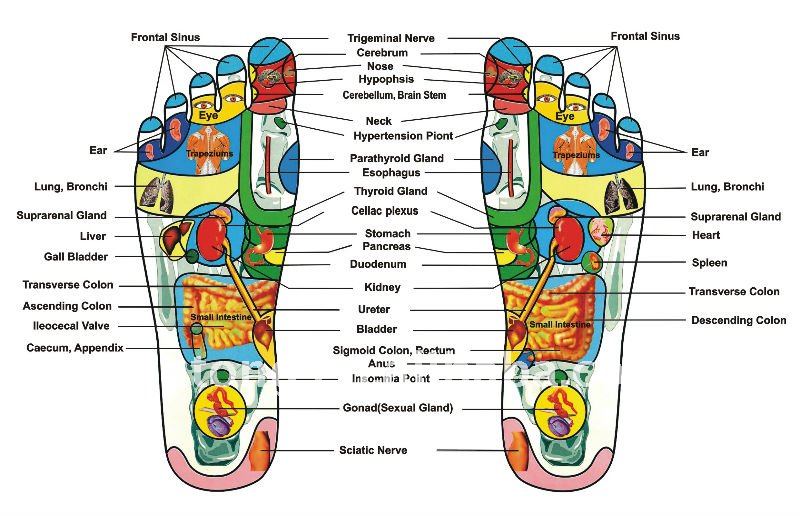 |
| This picture came on the box! |
Monday, September 30, 2013
"Go ahead, call me a Communist"
The Freshness and Fragrance of the Political Discourse Has Fallen Like a House of Cards
We have to find a new balance, otherwise even the moral edifice of the church is likely to fall like a house of cards, losing the freshness and fragrance of the Gospel. -Pope Francis
I have perused your late mathematical Prize Question, proposed in lieu of one in Natural Philosophy, for the ensuing year...Permit me then humbly to propose one of that sort for your consideration, and through you, if you approve it, for the serious Enquiry of learned Physicians, Chemists, &c. of this enlightened Age. It is universally well known, that in digesting our common food, there is created or produced in the bowels of human creatures, a great quantity of wind. That the permitting this air to escape and mix with the atmosphere, is usually offensive to the company, from the fetid smell that accompanies it. That all well-bred people therefore, to avoid giving such offence, forcibly restrain the efforts of nature to discharge that wind. -Benjamin Franklin
| All National Parks in MA closed. Patch File Photos |
This week, Deborah and I have started to watch "House of Cards." I am transfixed when Kevin Spacey deftly turns his head, like Magnum PI, and talks directly to me in the dulcet tones one imagines would belong to Machiavelli, had he been from the American South. Spacey's use of apostrophe is delicious; his hard-nosed, single-handed walking of Russo (no Jean-Jacques Rousseau or even Lloyd Bentsen) down the path to redemption makes me shudder. Can't you imagine Billary smoking cigarettes in the upstairs window? And don't you wake up wondering if Zoe Barnes is your greatest nightmare or wettest dream? House of cards, indeed! His bold, if predictably salacious, made-for-Netflix mini-series is probably the most interesting thing happening in politics right now, but, sadly, not the most important. Life imitates art, but still no binge TV show will ever be more important than the utterances of the real Congressmen as they unravel our national trust.
The absurdity of the public discourse has crescendo-ed to a new and tedious plateau.
In an increasingly shrill barrage of emails issuing from Democracy for America (Howard Dean's group), I have been asked to be furious that Bill O'Reilly would call Robert Reich, the old Clinton-era Secretary of the Labor Movement, a "Communist," but then be unwilling to debate him on a widely-watched national TV program called...yup, The O'Reilly Factor. These pleas for support for Mr. Reich are mostly manufactured by Reich himself, which makes me care even less for his plight. I am, unapologetically, not angry about this. I cannot marshal any indignation at these indignities. The epithet itself is empty to me since I live in the mind-boggling epicenter of capitalism (Beijing) touted as "communism with Chinese characteristics" and I really don't remember the Vietnam War. (Some of the miscreants who dictate our national conversation would probably label me a Pinko just for deigning to live in China for a few years or for criticizing my country from abroad. I say, let them eat smelly tofu.)
 |
| Photo by Steve Jurvetson |
People who like healthcare, National Parks, and other nice things that our government provides for us will join the new party and desert the prattling pranksters of The Wrong. I am for a new elitism that encourages Dean and his band of merry men to ignore the ignorant. Are these champions of the 99%--mostly from the ivory tower or collared in white--afraid that nobody will listen to them if they do not pander to the loony listeners of Limbaugh and odious oodles of O'Reilly oglers? The nation would be better off if we sent the climate deniers and the panels of Darwin Award nominees (who are dictating Texas textbook tenets!) to continue their masturbatory exercises in an undisclosed location.
Gone are the days of Benjamin Franklin, who used his withering tongue to great effect, but also schemed ways to bury the hatchet and make a great peace. "He that has once done you a Kindness will be more ready to do you another, than he whom you yourself have obliged," counselled the Sage of Philly. Is Reich hoping O'Reilly will lend him a book? What is the end-game even if Reich can make O'Reilly eat his own lunch? Furthermore, we should wonder: does O'Reilly even read rare books?
Set is the sun on a day when Winston Churchill could, with a Cheshire Cat's grin and a puff on his Karshian cigar, rip his opponent to ribbons, yet dawning is an age of endless, unhappy, purposeless drivel out from which nothing comes. The acerbic tongue is not a newcomer to the political mire. For me, one of the most enjoyable books of recent years was "Infamous Scribblers" which indulged readers with all sorts of bombast traded between our nation's founding fathers and the burgeoning Fourth Estate of the nascent nation. Jonathan Swift was not even the first to delightfully skewer with satire while roasting the prigs of his era. Still, most of these people seemed to have had a purpose to their cutting remarks. Now, we are just left with Jon Stewart, Stephen Colbert (my second favorite Catholic), and less central Bill Maher, for whom the fodder is an endless menu of Weiners and Spitzers and Edwardsian tails [sic]. While I laugh grimly with the rest of you, where is it getting us?
I left New Hampshire, partly in boredom and partly in frustration with the sort of meaningless nonsense that the Party Chairman there pedals to papers in the Granite State. He has trained a whole generation in his vapid tactics. Mountains are made of molehills. Men with unseemly weddings get national attention as the nipple-dragging charlatan generates his newest flash in the pan. It is masterful and empty. When the conversation should be about taxes, it is about sex. In fact, the only institutions more obsessed with sex than the Catholic Church seem to be the two dominant parties with their incessant focus on the hookers of Bookers, as well as overly broad pronouncements about the complicated and deeply personal issues of abortion and gay marriage.
I was too amused the other day when a friend, who will have to pardon me for recounting this, sent out a backhanded email for her At-Large City Council campaign. It said, and I quote, "Some of my opponents don’t share the same civic-minded principals that C--- resident’s value. If elected, my opponents will seek to radically change C-----, injecting ideology and politics into every corner of municipal government." (I will not focus on the genitive apostrophe appended to a single resident, nor the misspelling of principles, as I did in my glib, pithy back-and-forth with her.) No, look at the message itself! Caesar himself was no more adept at the use of rhetoric. She claims the non-ideological, unpolitical high ground for herself with a message that overtly transforms the municipal race into one charged with the sort of nastiness from which she seeks to distance herself.
I am praying for a change. I just hope nobody calls me the Anti-Christ. That is something up with which I should not put.
Alexander Lee teaches critical thinking, history, spelling, and punctuation in China.
Subscribe to:
Posts (Atom)

